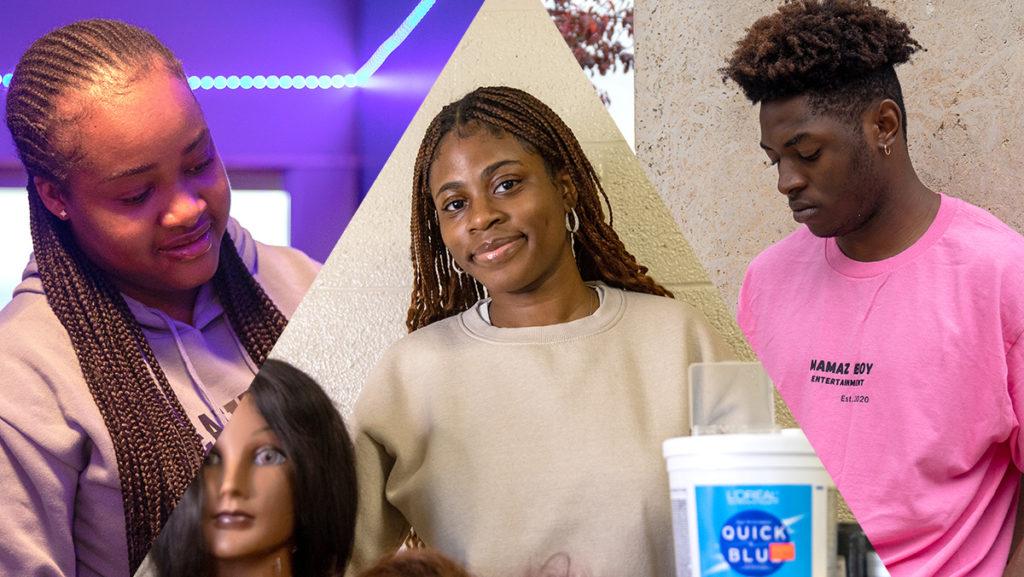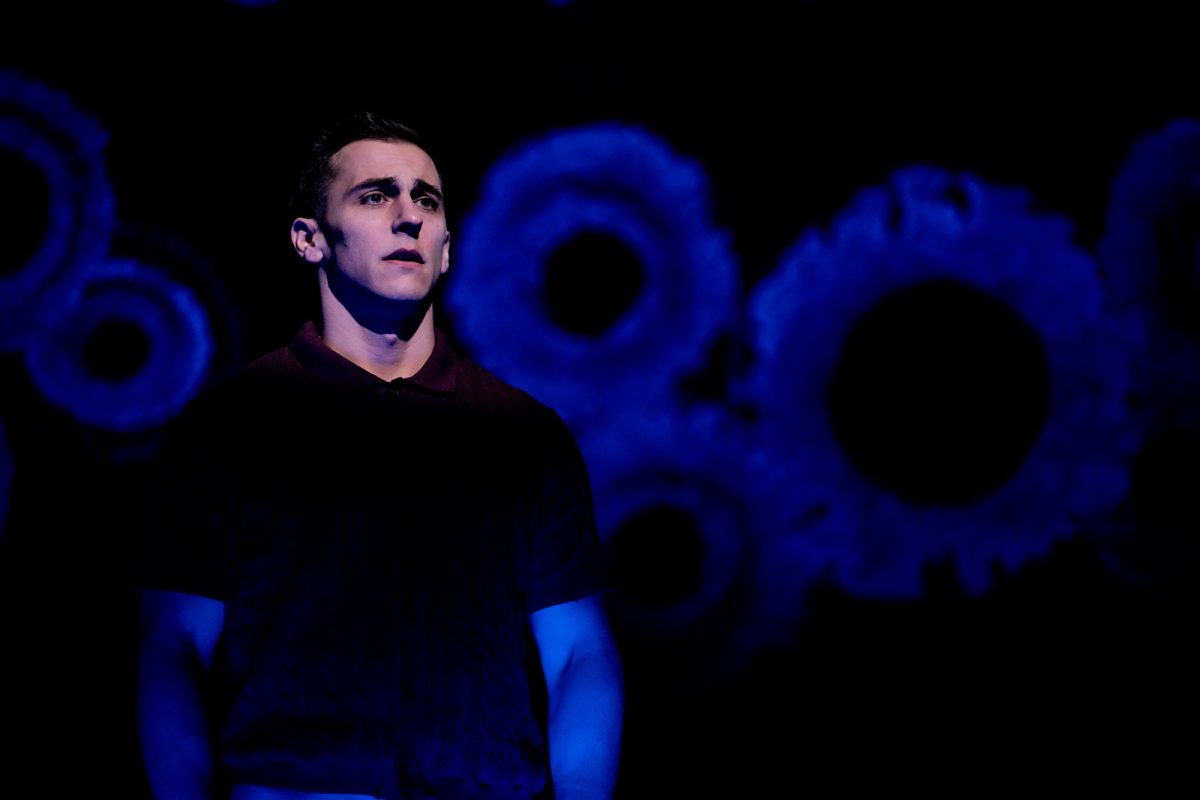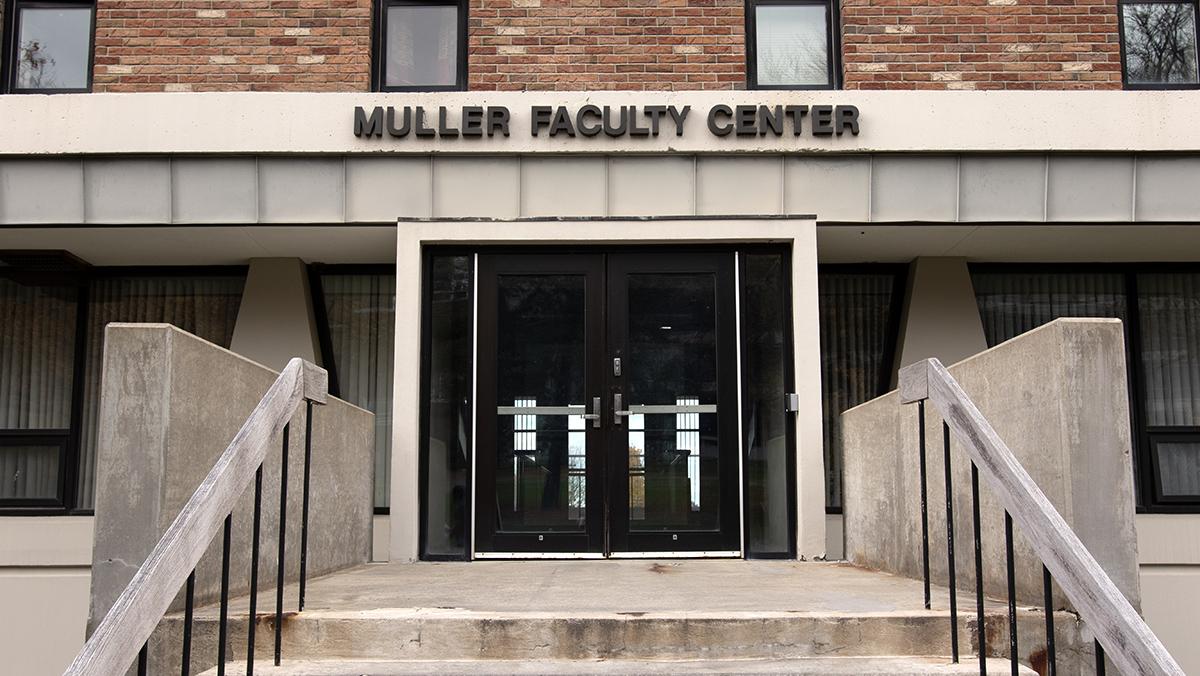Ithaca College senior Oluwadamilola Oyetunji said the first time she made a wig for someone else was in high school, and all she had to use was a dollar’s worth of black thread, a needle, a wig cap and hair provided by her client.
“One day I came to school with my hair up and a wig on that I made myself and this girl asked me ‘who did your hair’ and I said ‘oh, I did it’ and she said ‘well can you do mine?’” Oyetunji said. “She came to my house because she wanted to try [the wig] on. I put it on her and it fit just right and she just fell in love. Ever since she was a consistent customer and she inspired me to make an actual Instagram page to market myself.”
Oyetunji, founder of Wigs by Dams, was one of five student entrepreneurs featured in the college’s Center for Inclusion, Diversity, Equity, and Social Change (IDEAS) student of color business expo Oct. 7. The expo was held in the African Society Lounge in West Tower and also featured The Universal Experience, Mali Kutz, Dami Love and Mamaz Boy Apparel. At the event, which was part of the First Friday with IDEAS series, attendees were given the chance to meet the student entrepreneurs, learn about their businesses and build connections. Following the event, students had the opportunity to stay and spend time with each other in a more informal way by playing games.
“It was so cool that [the Center for IDEAS] did this because I was struggling to bring my business out for people to know that there was a business for them, for Black girls, on campus,” Oyetunji said. “When they had the expo, that was my opportunity to talk about my business and let people know that if you need your hair done, I’m that person to go to. It definitely helped with promoting my business and supporting it, too. For them to reach out to me was a huge thing for me.”
Junior Liguori Flanagan said the Center for IDEAS and Angélica Carrington, director of the Center for IDEAS, consistently supports his business, Mamaz Boy Apparel. Mamaz Boy Apparel is a clothing brand he has been developing since 2020.
“Every month they ask me if there’s anything they can support, just wanting to buy something from me,” Flanagan said. “[Carrington], she’s always just being so helpful.”
Flanagan said it can be difficult to balance running a business and being a student, but other students at the college heavily support him. Flanagan said any time he walks around campus with his products, students ask him about the brand and how they can help him promote it.
“It’s definitely the good and positive energy that I get from other people that makes me want to continue to run this,” Flanagan said. “It just forces me to push through the school work and business and run both.”
Flanagan said he named his company Mamaz Boy Apparel because he wanted everyone to connect to it, whether they thought about their own mother or about being a mother themselves one day. Flanagan said his mom is a huge support system in his life and always reminds him that there is nothing in this world he cannot do.
“I just wanted us to all have a neutral point in connectivity,” Flanagan said. “I really wanted [the company] to be an inclusive thing where no matter the gender, no matter the race, we could all connect to each other in some form. Which is why I chose clothes, because we can all wear a t-shirt that says Mamaz Boy.”
Junior Anesha Sandiford — who runs The Universal Experience — said Carrington has helped her too to feel included and establish her business at the college.
“I just met her this semester, but she’s been very welcoming to me,” Sandiford said. “[She’s been] giving me ideas and providing a spotlight to amplify my business.”
The Universal Experience is a hair and beauty service for people of color, to help support Black students to properly take care of their hair while being away from home. Sandiford said she hopes one day to open multiple businesses around predominantly white institutions (PWI) like Ithaca College to offer Black students affordable hair care.
A PWI is a higher education institution where 50% or more of the student population is white students. According to the college’s Office of Analytics and Institutional Research, in Fall 2022, white students accounted for 72.4% of the college’s student population and Black, indigenous and people of color accounted for 23.2% of students.
Oyetunji said that it is important that Black students have options for hair care.
“It’s hard to find ways to really manage hair, especially in a PWI. I provide an option where it’s like, ‘hey, I’m lazy, I don’t want to twist my hair and be up until two o’clock in the morning trying to figure out what to do with my hair.’ I have a way more convenient option, like I’m waking up for my 9 a.m. class and I can just put on a wig from Dami. I want that to be an option for Black girls.”








